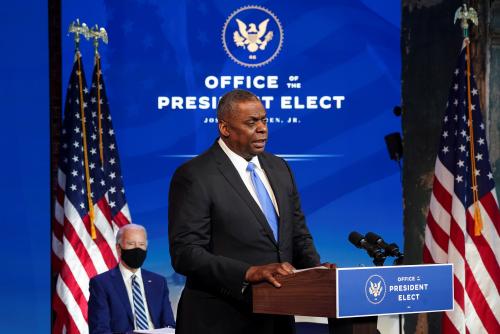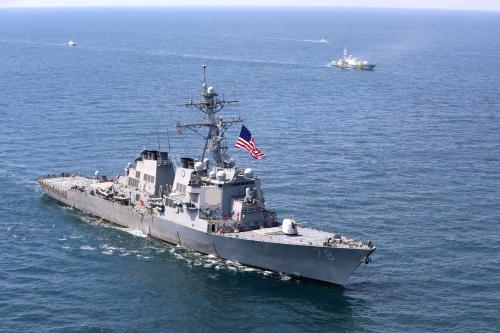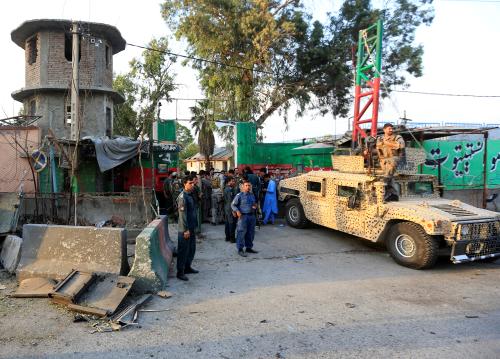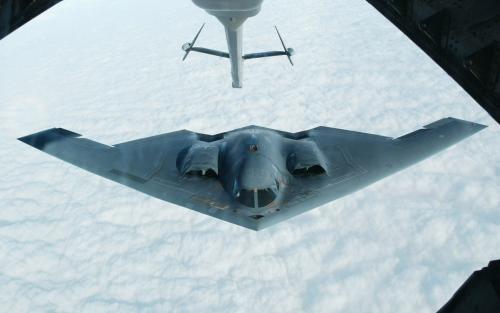With President-elect Joe Biden’s decision to nominate retired General Lloyd Austin as the next secretary of defense, much of the reaction has centered on the issue of civil-military relations. Will Austin, a career Army officer, really be able to adopt the mindset needed to ensure civilian control of America’s armed forces?
That is a valid question, but to our mind there is an even more pressing one concerning the checks and balances on how our country employs military power. Since World War II, the executive branch has usurped war-making powers that the U.S. Constitution entrusted to the people’s branch of government, Congress. This pressing issue demands major, comprehensive new legislation from a new Congress and president come 2021.
The issue is not just Donald Trump and his impulsive style of decisionmaking. The worry goes way beyond Trump. Indeed, whatever his other flaws, he may leave the White House having conducted fewer new military operations than most of his post-Franklin Delano Roosevelt predecessors.
Under Article I of the Constitution, only Congress can declare war, raise armies, and maintain navies, and otherwise provide funds for the common defense. The president, by contrast, is commander in chief of the military. Both branches have huge responsibilities; neither can wage war by their own decision or preference.
Yet Congress has not declared war since World War II. Nor has it formally approved, in any meaningful alternative way (except belatedly through the appropriations process), several of the major conflicts the nation has engaged in since then — notably, the Korean War, Vietnam War, Kosovo War, or 2011 Libya operation. Perhaps it is no coincidence that a number of those conflicts did not turn out so well. In fairness, it did approve both Iraq wars in advance, as well as the response to the 9/11 terrorist attacks, and in a manner of speaking the Vietnam War (through the somewhat disingenuous Gulf of Tonkin Resolution).
The stakes could be even higher in any possible scenario against Iran, and especially against nuclear-armed North Korea, China, or Russia. The people’s branch of government should play a central role in advance of any decision to initiate hostilities against one or more of these potential adversaries. The nation cannot tie the hands of this or any future commander-in-chief in a way that could leave the nation even temporarily defenseless. But that does not mean the president should get a blank check.
To begin, we should revise the 2001 Authorization on the Use of Military Force (AUMF) legislation. For 20 years, it has never been revised or even re-authorized. Policy-wise, that law targeted the perpetrators of the 9/11 attacks — Sunni/Salafist extremists under the al-Qaida banner and their associates. It does not even attempt to speak to the current situation with Shia-run Iran. But, this is also a problem because the American people remain disconnected from the wars they have been sending men and women to fight for two decades.
A new AUMF should not be indefinite. It might span five years, for example, after which another new AUMF would be needed. However, in the event that Congress failed to replace it, the previous authorities could remain in effect so as not to leave the country defenseless in the event of Washington gridlock. In addition, it should require that the director of national intelligence certify that any new extremist group had ideology, goals, and/or key membership that were related to al-Qaida or broader violent extremism/Salafism before a president was entitled to strike it. That would prevent a president from using the AUMF for entirely different purposes than its original intent, while allowing flexibility if new terrorist groups splintered off from old ones or simply changed their names to avoid being targeted.
In addition, the War Powers Act of 1973 needs revision. The current act only calls for the president to consult Congress before using force. It then effectively allows them free rein for 60 days before requiring congressional support for further action. Absent an acute and unexpected threat to the United States, for any operation the United States initiates, that number should instead be 0 days. Authorization before any attack should be required, except in cases of self-defense.
Finally, we need more constraints on the possible first use of U.S. nuclear weapons, unless the United States is itself already under direct nuclear attack. Richard Betts and Matthew Waxman have recommended requiring that the secretary of defense and attorney general both certify a decision to use nuclear weapons. Former U.S. Ambassador to Ukraine Steven Pifer has suggested a similar concept. Mandatory advance consultation with congressional leadership (not necessarily advance approval, though) should be considered, too. This would add an additional check specifically focused on nuclear use, above and beyond the requirement that Congress would need to approve any U.S. decision to go to war in the first place, unless the president were acting in immediate national self-defense.
Republicans and Democrats should be able to work together on this. The question is not about strengthening or weakening any one party at this particular moment, but honoring and respecting what our founders saw so clearly when they built a country based on institutions, laws, and checks and balances rather than on individuals.
The Brookings Institution is committed to quality, independence, and impact.
We are supported by a diverse array of funders. In line with our values and policies, each Brookings publication represents the sole views of its author(s).












Commentary
War powers in the era of Joe Biden and Lloyd Austin
December 18, 2020